German
EXPLORE German at Aquinas
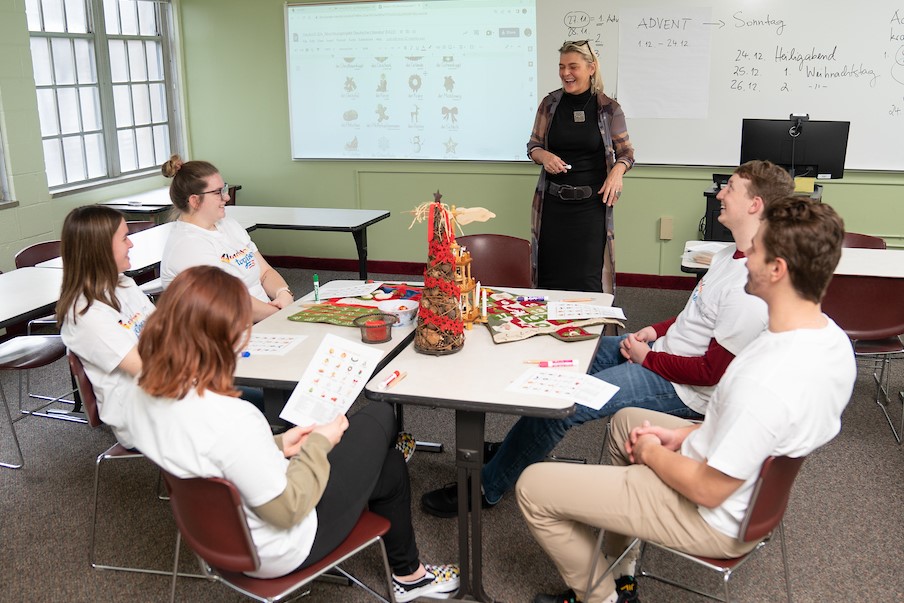
Ever wondered what it would be like to step fully into another culture? The German program at Aquinas does just that, immersing you in German culture both in the U.S. and abroad. You’ll develop all four language skills — listening, speaking, reading, and writing — all while using German in interactive ways. As you grow in fluency, you’ll explore literature, linguistics, translation, interpretation, and cultural studies, and you’ll have opportunities for community engagement through service learning. Each course is designed to expand your understanding of the human experience, all while living the Dominican charisms of prayer, study, community, and service. You’ll graduate ready to speak German, connect meaningfully across cultures, and make an impact in a global community!
It's your time to speak
Career Preparation based on leadership
The Department of World Languages at Aquinas College promotes an understanding of and exchange with other cultures both within and outside the United States. Our integrated program of language learning incorporates all of the four language skills: listening, speaking, reading, and writing. Students learn to use the language in a communicative, interactive environment within the classroom. The Department also offers a variety of courses for advanced study in culture, literature, applied language for the professions, translation and interpretation. These courses are designed to enhance an understanding of the richness of the human experience across cultures; which prepares our students for graduate school and the professional world.
Student Learning Outcomes (SLO's) in the Department of World Languages are aligned with national and state standards on language teaching, development of language skills, and cultural understanding as reflected in the Proficiency Guidelines by the American Council on the Teaching of Foreign Language (ACTFL).
- Students will work towards attaining an Intermediate High or higher proficiency level in reading, writing, listening, and speaking in the language studied according to recognized professional guidelines in the four language skills (ACTFL Standards)
- Students will learn to understand both oral and written communication from a variety of sources (i.e., academic lectures, literature, online sources, news broadcasts etc.)
- Students will learn how to communicate effectively in the target language in spoken and written form, expressing a wide variety of topics from personal information to more abstract views and perspectives related to literary, socio-historical, political, and cultural themes.
- Students will work towards obtaining a broad base of knowledge and perspectives on French-, German-, and Spanish-speaking civilizations and their respective cultures – including literature, the arts, political, socio-historical, and economic structures, etc. – within a variety of interpretive frameworks.
- Students will learn how to understand aspects of language and culture in the world as part of human communication in wider interdisciplinary contexts.
- Students will develop skills in critical thinking and analysis, including (but not limited to) textual analysis.
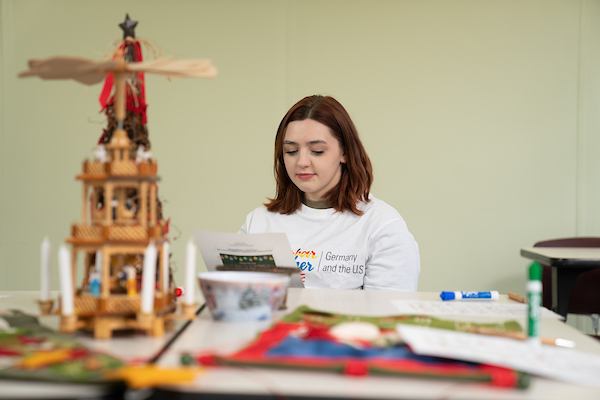
Student Research
Explore research from real Aquinas students in the German Program under the guidance of our dedicated faculty.
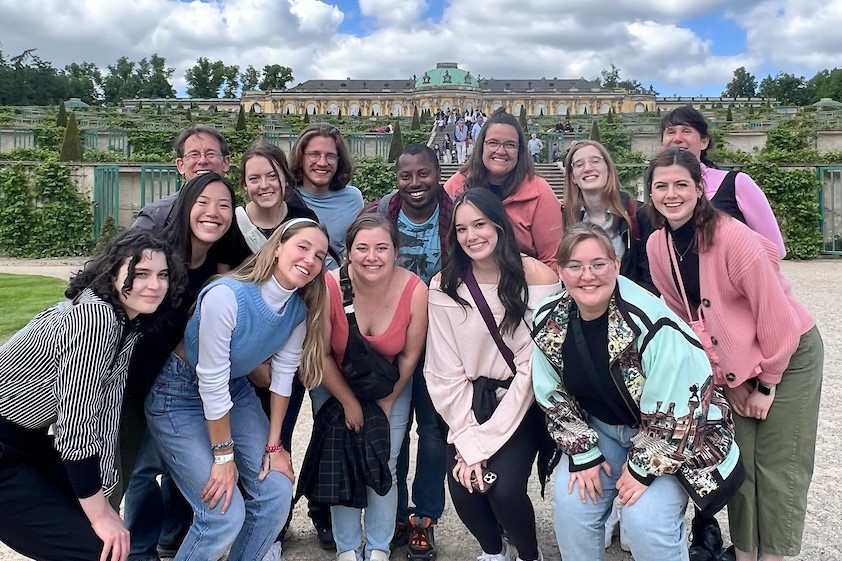
German National Honors Society
Aquinas College is the home of the Tau Epsilon chapter of Delta Phi Alpha, the National Honor Society for students and professors of German
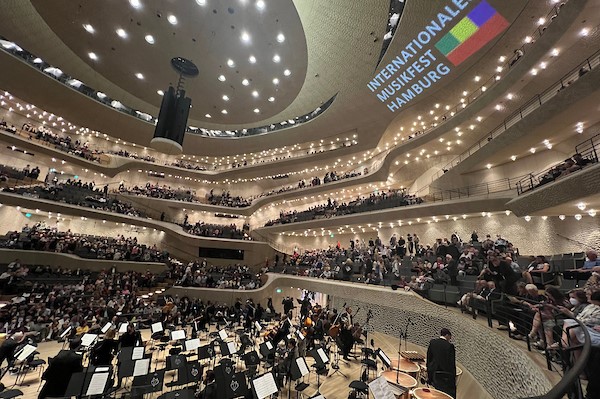
German Cultural Experience
Our German cultural immersion includes academic opportunities, a study away experience, honor student opportunities, and a number of possibilities to engage in German cultural experiences in the Grand Rapids area.
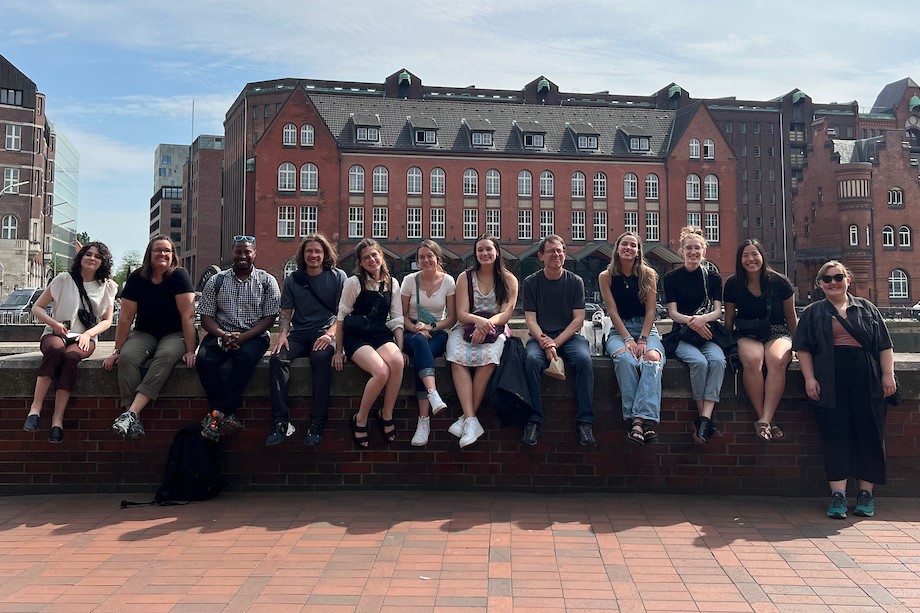
Study Away
This Spring Semester program takes place at the University of Lüneburg in Lüneburg, located in northern Germany approximately 20 miles south of Hamburg. The program’s curriculum focuses on German language and culture
IMAGINE THE POSSIBILITIES
Majoring or minoring in German is a way for students to develop the global knowledge and expertise that are increasingly valued in the marketplace. Proficiency in a second language is in itself a valuable skill, but students gaining that proficiency will also learn to gain new perspectives on other cultures, as well as on American culture and practices.
The following is a list of career possibilities for language majors and minors. It is by no means exhaustive, but is to suggest potential areas for future employment. The World Language Department faculty strongly encourage students to discuss their ideas concerning post-graduate employment with professors within and outside the department.
|
|
|
Occupational Employment and Wages - May 2022
Employment estimate and mean wage estimates for Interpreters and Translators:
| Employment | Mean hourly wage | Mean annual wage |
|---|---|---|
| 52,160 | $29.68 | $61,730 |
Percentile wage estimates for this occupation:
| Percentile | 10% | 25% | 50% | 75% | 90% |
|---|---|---|---|---|---|
| Hourly Wage | $16.13 | $19.92 | $25.79 | $35.30 | $44.78 |
| Annual Wage | $33,540 | $41,440 | $53,640 | $73,430 | $93,140 |
For more information see: Bureau of Labor Statistics
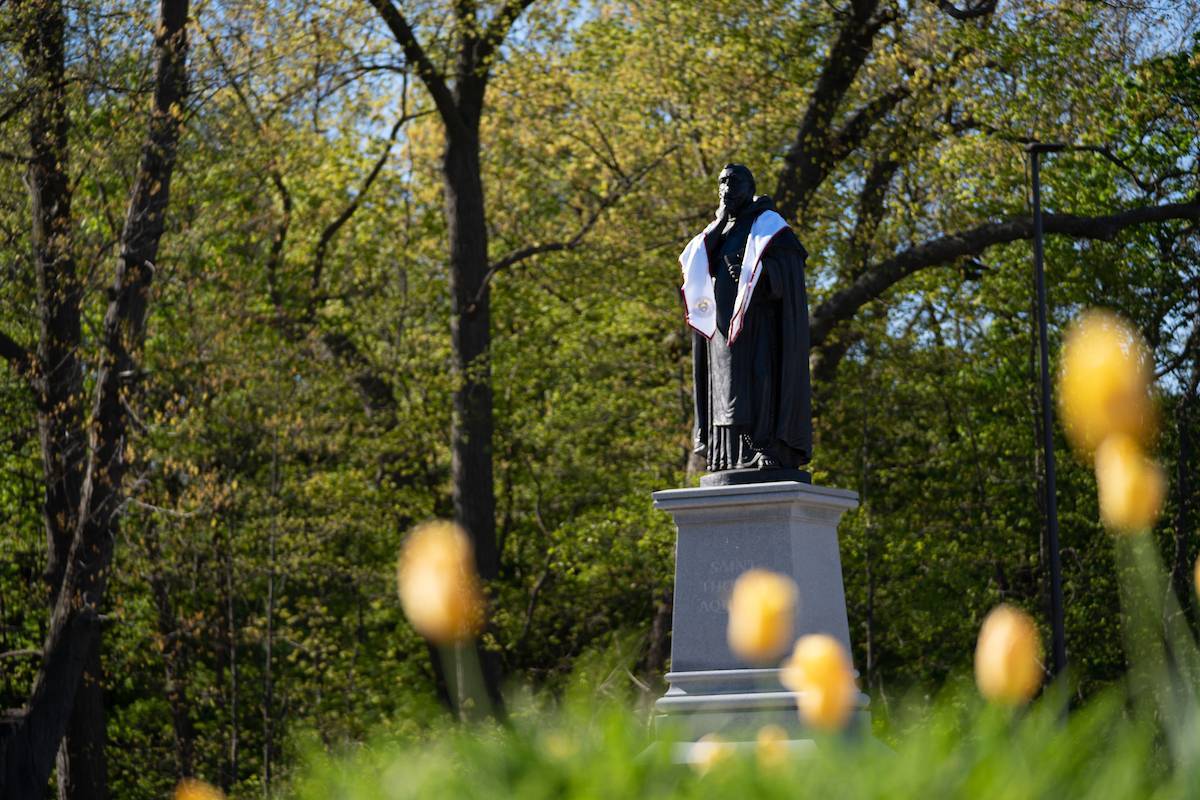
Did you know?
More than 1,100 companies from German-speaking countries have U.S. subsidiaries.
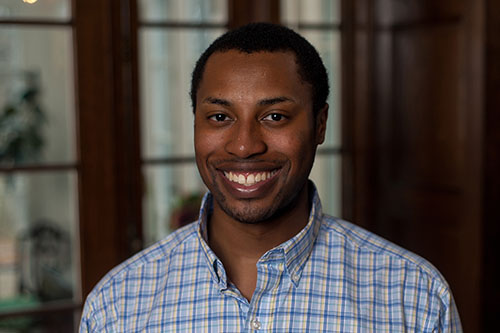
Alumni Profiles
AQ grads are thankful for the small class sizes that allow them to form personal relationships with professors.




